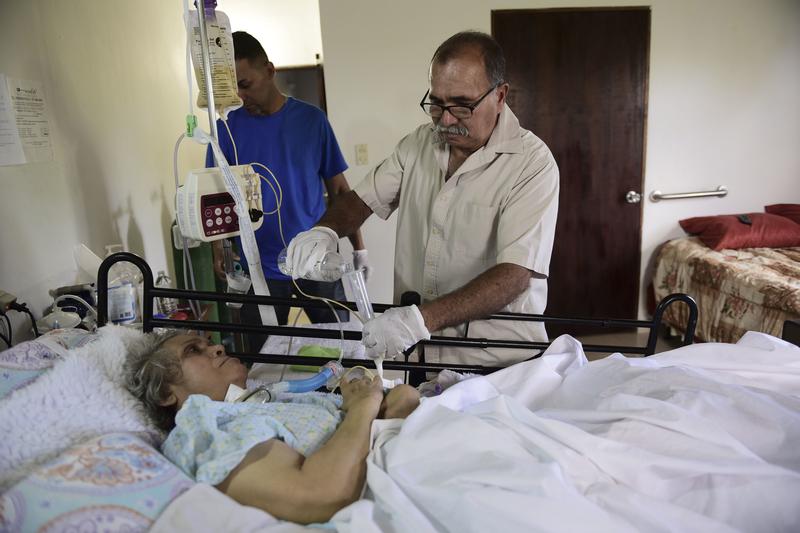
Jennifer Ortiz is a disabled diabetic who came to the South Bronx from Puerto Rico in November, shortly after Hurricane Maria damaged her roof and made her house unlivable. Even now, her local hospital still struggles to maintaining consistent electricity, and the services that she needs aren't easily accessible. But time is running out: she will lose her FEMA-funded hotel room on Saturday.
"FEMA wants me to go back, but where am I going to live?" she said. Flying back to Puerto Rico, she explained, "would be horrible for her health."
Ortiz is one of 108 households that evacuated from Puerto Rico who are living in New York City as part of FEMA's Transitional Shelter Assistance Program, according to a FEMA spokeswoman. Federal funding for the program, which has provided temporary hotel rooms or shelter access, ends on June 30. For many of them, going back to Puerto Rico is not an option.
In the months after Maria, 3,683 Puerto Ricans came to New York with FEMA's aid, though most crowded into homes belonging to friends and relatives. Of those who enrolled in the temporary housing program, about a third in have already found housing or returned to the island. Some others are taking advantage of FEMA's offer to pay for flights back to Puerto Rico until July 1.
Magerita Roldan is one of them.
"I'm going back," Roldan said. "FEMA is taking me. Yea, I can't be here any more."
The 76-year old woman left Puerto Rico days after the hurricane hit. She had previously broken her arm and was scheduled for surgery in Puerto Rico. But when that became impossible after Maria, she headed to New York, where through a case manager, she found the medical services as well as a hotel room she needed.
Sandra Martínez hasn't had as optimal an experience with finding housing and social services.
"A case manager will call me almost every day, and tell me that the FEMA deadline is coming up," Martínez said. But as far as receiving long-term housing assistance, Martínez said, "They have said a lot, but haven't done a lot."
The sole care provider for her three children — one of which became handicapped in 2016 — Martinez found a physical therapy program for her son that gets him out of their hotel. She found the program with help from Diaspora Pol Puerto Rico, a small non-profit working to meet the long term needs of Puerto Rican evacuees.
A city spokeswoman, Jaclyn Rothenberg, says the Department of Homeless Services is expecting about 600 Puerto Rican evacuees to end up in the city's shelter system. In the short term, she said, city employees will transfer families from FEMA-funded hotels into city-funded hotels, though the families will need to apply at the city's central registration center and qualify in order to stay in those rooms.
The de Blasio administration was already struggling with a severe homelessness problem prior to Hurricane Maria. And Jennifer Ortiz and Sandra Martínez shared concerns about having to go back through the shelter register system known as PATH.
"I was in a shelter for about a month where I slept on the floor with my son, then FEMA said they would provide hotels. I was taken off the shelter system wait-list months ago," Martínez explained.
Evacuees have still other options through FEMA. They can apply for a long-term rental assistance program, but Martinez says she already tried. "A lot of places won't let us sign a lease if I can't put two months of a rent payment down right away," she said.
Both Martínez and Ortiz have all their things packed, and are waiting to see what they are told to do.
